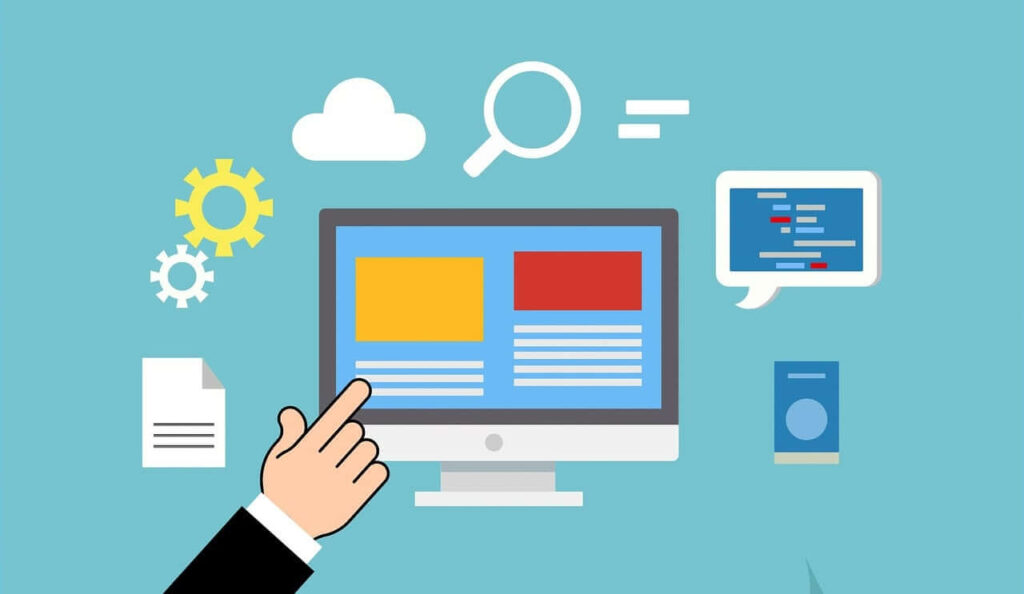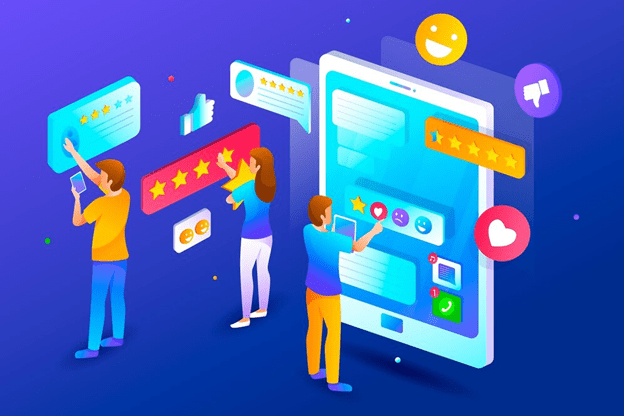The key to an event’s overall success in the modern world is its marketing. This is where the Digital Marketing services for event planners come in.
Marketing is conducted whenever needs arise, and for these purposes, it offers countless tools, resources, and strategies that can all be employed to help promote the event, interact with the audience, and assess the outcomes.
But how can you harness the power of Digital Marketing services to help event planners attain maximal success?
This article emphasizes the practical aspects specifically. What other practical approach will we take to investigate how we can use various digital platforms and tools to our advantage?
We will do everything, from designing attractive event landing pages to effectively marketing them through social networks.
As we mentioned, keep reading if you are an event organizer, marketer, or manager. This guide will ensure you know how to properly utilize Digital Marketing services for event planners and its tools for organizing events.
Overview of Digital Marketing services for event planner
Every event has many aspects that make it a success, and one of those is event marketing. It means quickly dispersing information to a large audience. People engaging in the event by employing digital methods in event marketing can raise their voices and generate enthusiasm.
Digital Marketing services for event planners also enable selective promotion. You can focus on a particular group of people with a message that will interest them. A good tactic can also generate excitement before the event, guaranteeing good attendance and participation on the day. In addition to greater outreach, the organization has many wider benefits—one can understand the likes and behavior of attendees. This evidence-based practice can be effective in enhancing preparations for your next occasion.
Defining aims for online events and event marketing
Every event marketing campaign begins by establishing clear objectives that have proven effective. These objectives act as a compass guiding the rest of the activities towards the overall event aim. A campaign can easily be termed successful with set measurable goals.
Vital objectives require the following steps to be accomplished:
Highlight the goals you intend to achieve (e.g., attendance, participation, and business awareness levels).
Break these targets down into actionable steps listed in the form of goals.
Make sure your objectives are interlinked with other business objectives.
If well formulated, objectives allow you to plan in detail how different strategies will achieve the specific goals. When everyone can see the end target, more efforts help create a united campaign, thus assisting in the realization of the event’s full potential.
Identifying and Understanding Your Target Audience in Digital Marketing Services for event planner
Identifying the target audience for an event marketing campaign is essential for its success. Knowing the target audience assists in crafting and executing messages to be promoted. This step ensures that your event appeals to potential attendees.
Firstly, the audience needs to be studied to determine the demographics, interests, and other factors that could include the ideal audience for your event. You can improve your understanding by using surveys, social media, and data from previous events. Furthermore, audience representatives would be identified as the audience groups for the event. Such an approach ensures that materials versus sites maximize the chances of focusing your targeted audience’s eyes, increasing their involvement and attendance.
Creating a Compelling Event Landing Page
An event landing page is considered the virtual welcome mat for your event, which is why it must be engaging. This is the first page a user sees on any platform, and the most critical information needs to be presented appealingly and effectively immediately. Simple language should be used in the description as too many simple words, and too long an explanation will confuse readers.
Ensure the landing page has event information, such as the date, place, calendar, and the event. An event website that collects registration from the site in case someone desires it can be very beneficial. Pictures and motion graphics are also great for building the context. Display pictures or videos of previous events to make people trust you and yourself. The design calls to action stand out and make it easy for the audience to register attendance or browse the event details further. Landing pages need to be scripted effectively, as the event’s success lies in converting attendance interest into actual attendance.
Engaging Your Event Attendees through Email and Social Media Marketing
As far as direct electronic communication is concerned, emails have always proved to help promote events. They help let would-be attendees know what is happening and what they think is likely to occur. Besides, tailored emails can make a difference in the message you want to send.
There is no other ideal alternative to social media channels, as they can be used to excite your event. Ensure you constantly post updates and behind-the-scenes footage and interact with people through comments and messages. This social media can also be beneficial, as your event can get a lot of buzz quickly.
However, if you mix email and social media marketing, integrate brand essence across these platforms. This is how they should be used correctly:
Use this feature to target specific audience segments instead of mass marketing strategies to improve your conversion rates.
Persuade social media users with remarkable engagement to help you with content distribution.
Make a habit of posting content regularly for weeks before the meeting.
Lastly, make sure that there is timely feedback and action from the audience on social media. Page
How to Increase Participation in an Event by Email Marketing
Appropriate audience selection, however, should also be a reliable resource for making marketing claims. Segmentation makes every aspect of the message more meaningful. All e-mail messages must include a persuasive call to action.
The timing of emails is critical. To promote an event, sending emails in chronological order is typical, beginning with a simple date. Hence, it can be started with “save the date” communications, then moved towards informative emails, followed by reminders as the cut-off date progresses.
Social Media Techniques on How to Make Some Noise
Social media is beneficial for creating a sense of expectation. First, find out which platforms the people you are targeting are using. Then, change your content strategies according to each platform.
Get your audience excited with interactive elements such as polls, contests, or sneak peeks this is also a part of Digital Marketing services for event planner. Urge the attendees to post virtual outbursts on social media with a branded hashtag around the event. This raises the profile and helps create a feeling of engagement. Don’t forget that interaction is essential; engage with those commenting to stimulate further engagement.
Using Paid Ads and Retargeting for Maximum Exposure
Paid advertising can significantly broaden your reach to the event. Facebook and Instagram are great for this because their ads can be particular. Use their demographic filter options to target the correct audience.
Conversely, retargeting is a convenient way to retarget the people who visited your event page but didn’t register. Retargeting ads are an excellent way to keep the event in focus. This strategy may change prospects’ status into participants and thus improve your marketing campaigns.
Employing Video and Live Streaming to Display Key Aspects of the Event
Videos have become a fundamental tool for marketing any event. They capture the core of what your event is all about. Edit and produce short tapes that capture essential events or portions of the event setup. Such images are more captivating than words and are more likely to grab the attention of your target audience.
In digital marketing services for event planners, streaming events enables one to reach a broader audience. It provides more opportunities for the audience to be engaged in the situation as it is happening, thus making them more determined to attend future events. Streaming services such as YouTube Live or Facebook Live can be successfully used to expand the audience of your event regardless of its location.
Assessing the Results: Analytics and Event Marketing KPIs
Knowing what qualifies as success for your digital marketing campaigns is a complex process involving scrutiny of specific parameters. Analytics can assist you in establishing which strategies were employed successfully and which necessitated failure. Therefore, it is possible to strategize for subsequent events by analyzing specific parameters.
KPIs or key performance indicators are crucial in ascertaining the success of an event. Here are a few KPIs worth considering:
The number of registered and actual participants.
The amount of involvement in the different types of social media.
Degree of sales as a result of marketing efforts.
Assessment of these indicators enables you to measure the effectiveness of your marketing activities. You will then be able to understand elements of your event strategy that require improvement. Evaluating information after an event is almost equally important as the event itself.
The Next Phase of Virtual and Hybrid Events in Marketing
The context of events has changed with the emergence of virtual high and hybrid events. These events are flexible, reach a wider audience, and are cost-effective. They allow participants to join from any corner of the world, thus responding to geographical limitations.
With technological advancements in Digital Marketing services for event planners virtual space is expected to be enhanced with better experiences and more interactions. The future will feature the use of augmented and virtual reality. This change will give marketers various channels to reach and interact with their audiences. Keeping up with these trends guarantees the relevance and impact of your events.
Conclusion: Combining Digital Strategies for an Effective Campaign
Integrating several Digital Marketing services for event planner methods is essential in planning a successful event campaign. Channels like social networks, emails, paid ads, and content marketing allow audience segmentation and practical engagement. Distributing complementary digital strategies extends attendees’ engagement and heightens their satisfaction.
Wildnet Technologies is a leading digital marketing company in India that has had the pleasure of nurturing 4,100+ clients and generating more than USD 150 million in revenue over its 17-year journey.
Read More
- Digital Marketing for Home Services: Strategies for 2025
- Marketing Strategies for Veterinary Clinics
- Veterinary Website Design Services: Create a Stunning Online Presence for Veterinary Practice
- Best Digital Marketing Service for Electricians: How to Generate More Leads
- Digital Marketing for Retail
- Digital Marketing for Local Shops Will Increase Buys and Get More Foot Traffic.
Faq
In what ways can event planners utilize influencer marketing to market their events?
Answer: Event planners can partner with prominent industry figures or even local personalities to enhance the buzz around the event and make it even more visible. Influencers can promote events through actual content, testimonials, and live coverage, which helps greatly improve the reach among the desired target groups.
What techniques can be applied through email marketing to achieve optimal event attendance?
Answer: Open rates and engagement can be heightened by segmenting email lists and opting to send messages that are not only personalized but are also sent at the most appropriate times. Email as a marketing tool is most useful for event planners as it can automate processes such as drip campaigns, countdowns to the event, giveaways, and pre and post-event emails, which can ensure that the event remains fresh in the minds of the potential registrants or ticket buyers.
How many event planners use paid advertisements (PPC) to boost the visibility of an event?
Answer: Event planners can sell particular events. Additionally, they can advertise them to a particular group of audiences through paid advertisements placed in Google Ads, Facebook, and other platforms based on interests, demographics, or previous contacts with the brand. Remarketing/Retargeting ads are performing very well, particularly when it comes to people who visited the websites but did not register at an early stage of their journey.
Which metrics do you find helpful in assessing the effectiveness of the marketing activity among the clients to whom you created an event?
Answer: Event planners typically measure several key metrics, such as the rate of event registrations, the website’s number of visitors, the number of social interactions (shares, likes, and comments) on social networks, and the number of conversions from targeted advertising campaigns. Google Analytics and social media insights are some tools that provide real-time statistics about the attendees, thus creating better campaigns in the future.
What are the critical elements of an event planner’s website for marketing their events?
Answer: The planner’s website must be easy to navigate, mobile responsive, and have a clear action-oriented button directing potential buyers to register for the event. Including an event time remaining counter, a chat feature for immediate assistance, engaging event-specific content, and comprehensive event details may also help optimize engagements and increase conversions.






